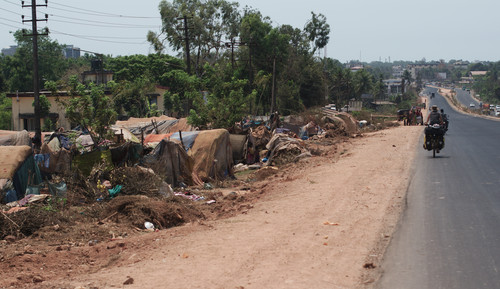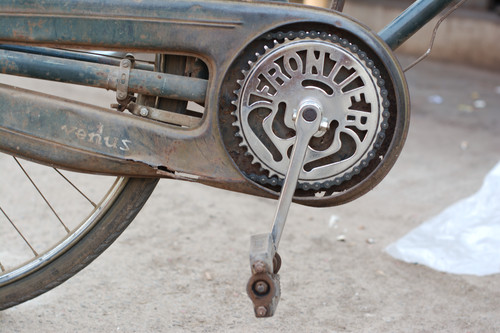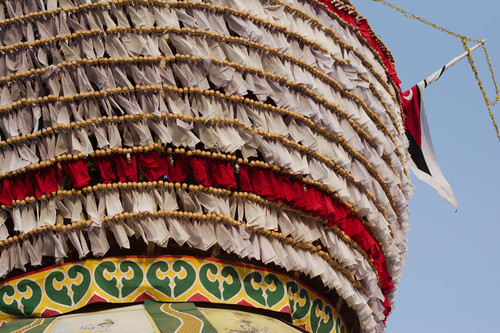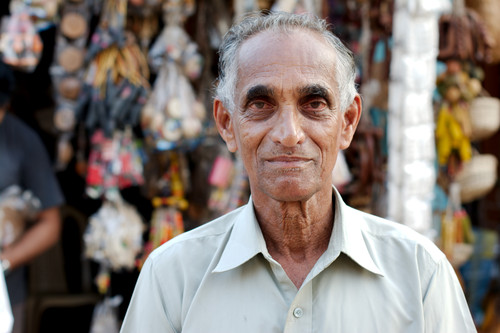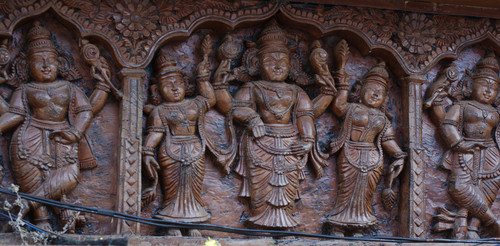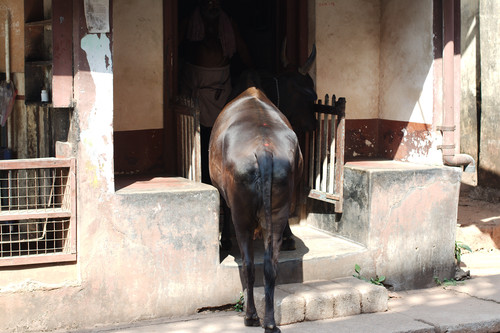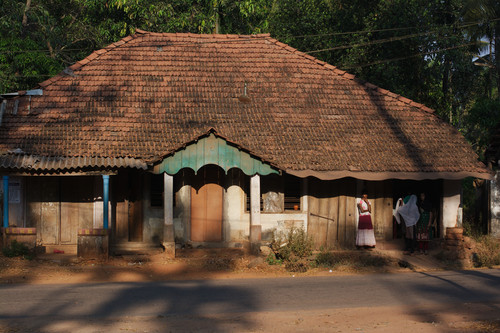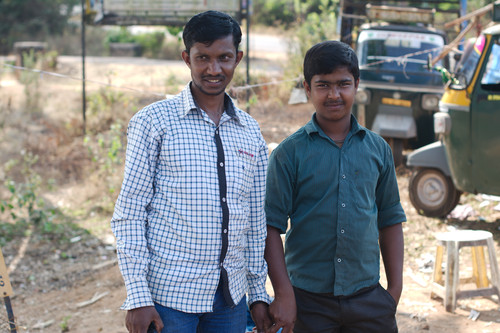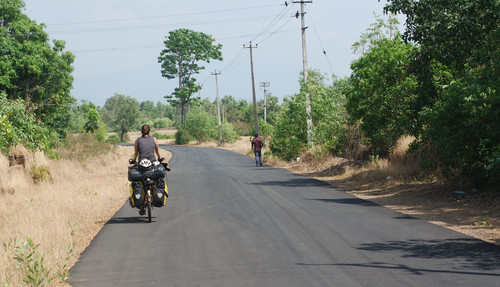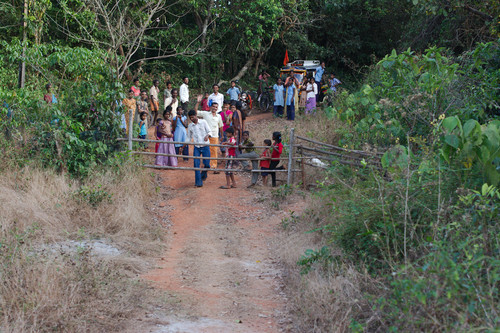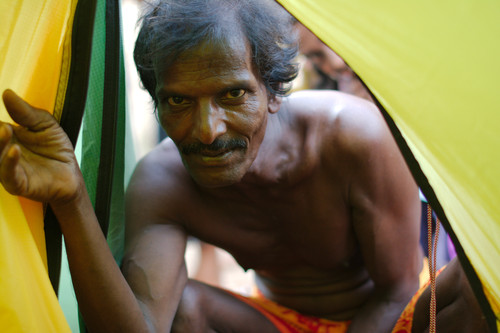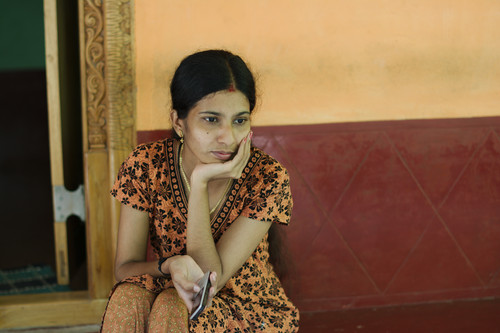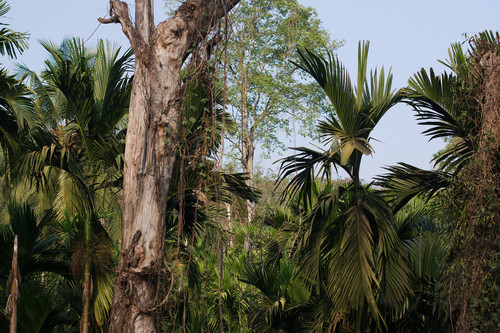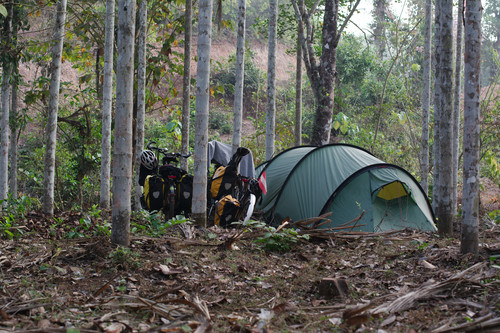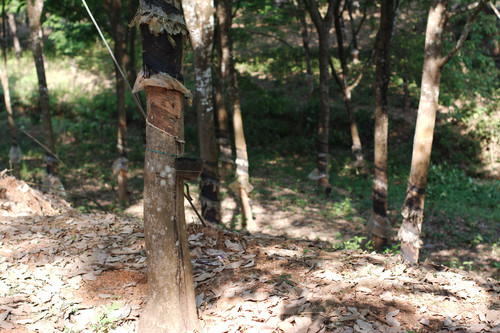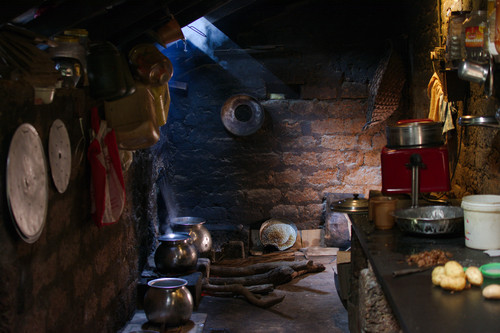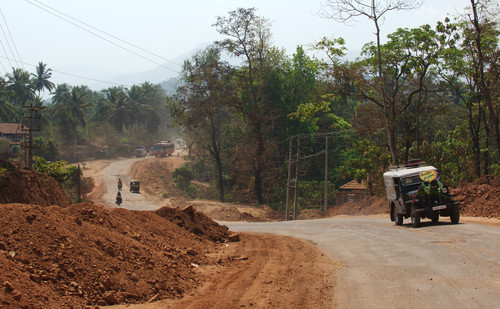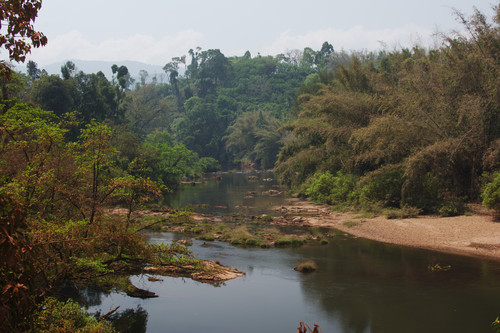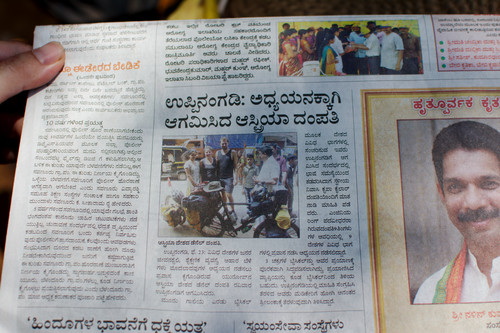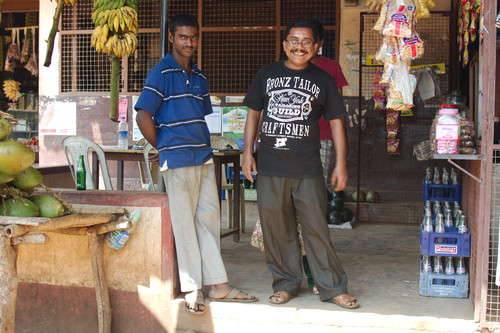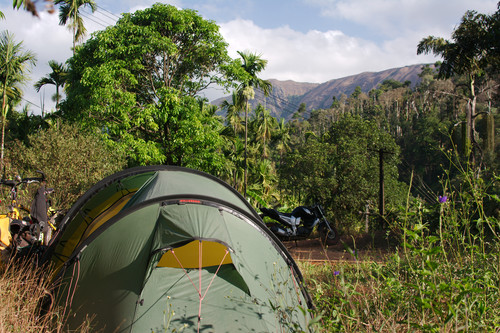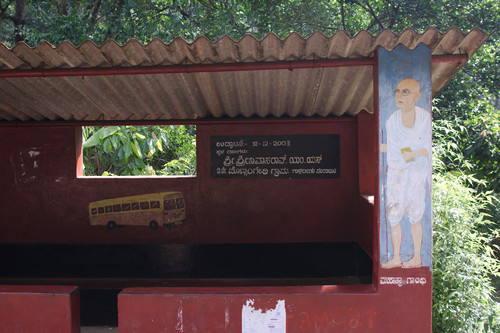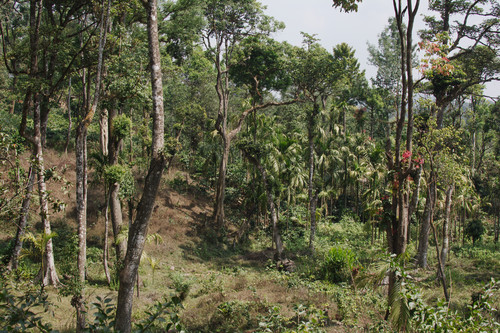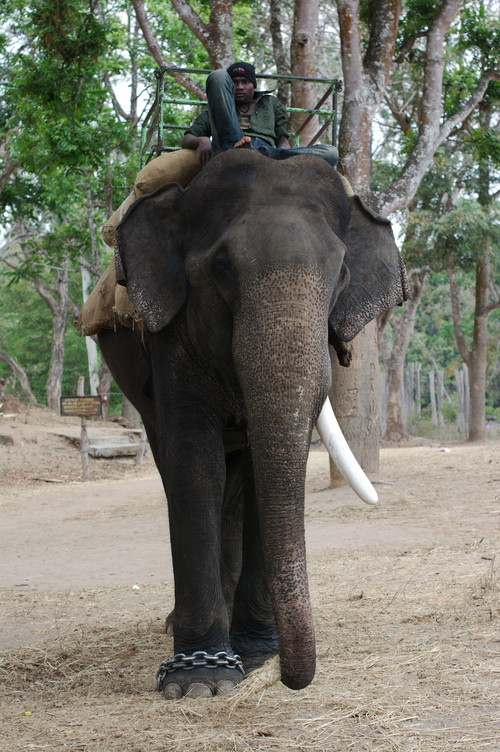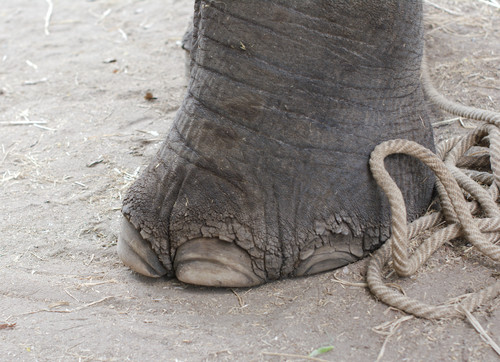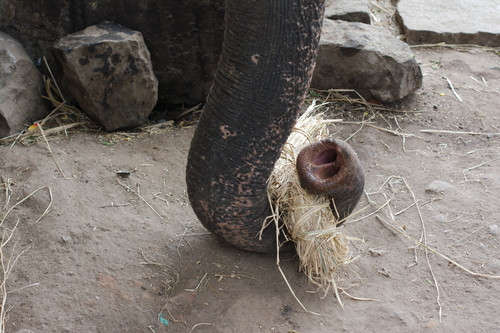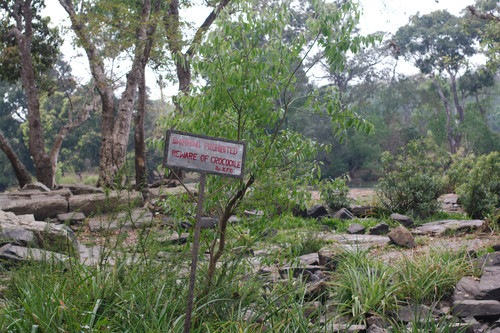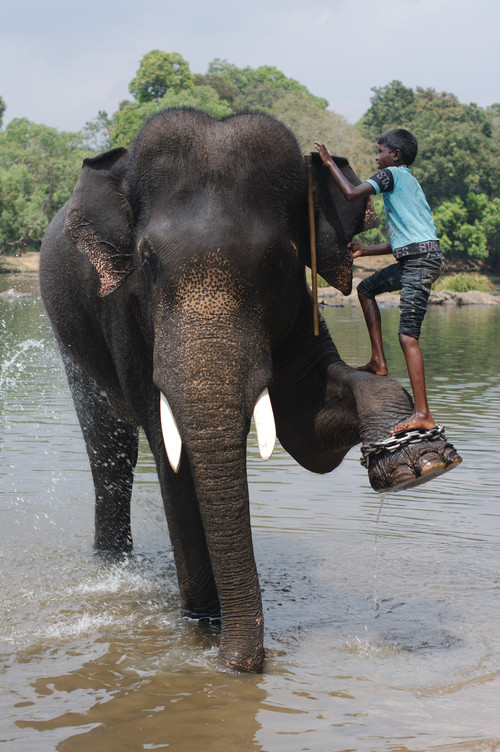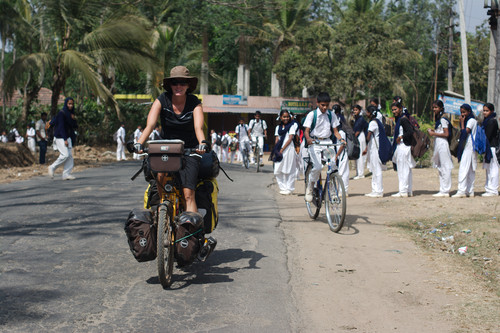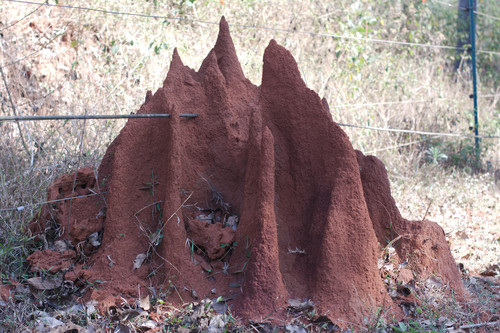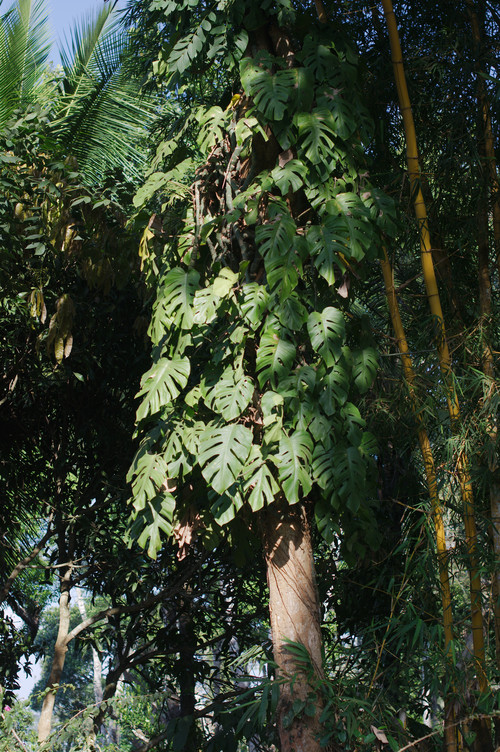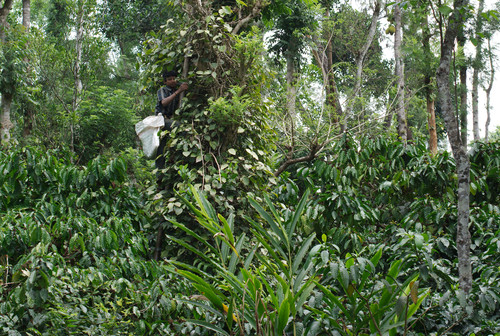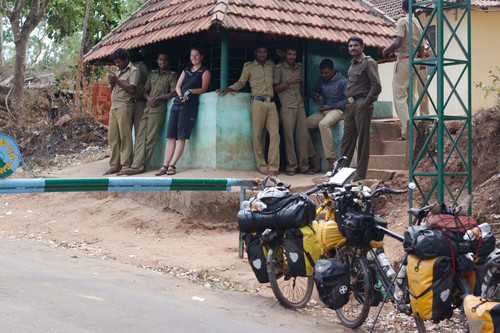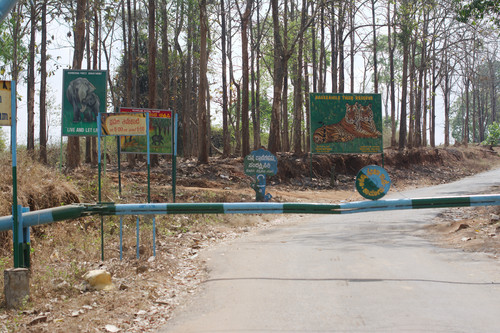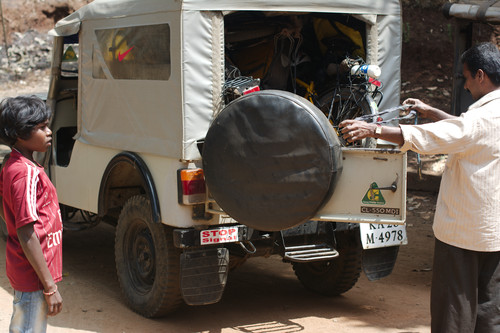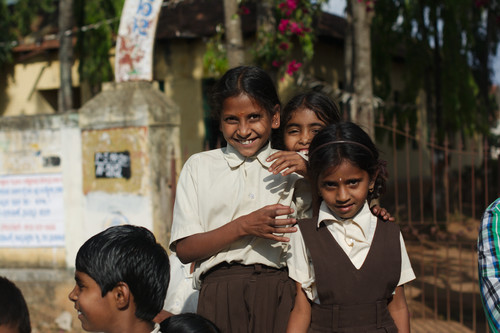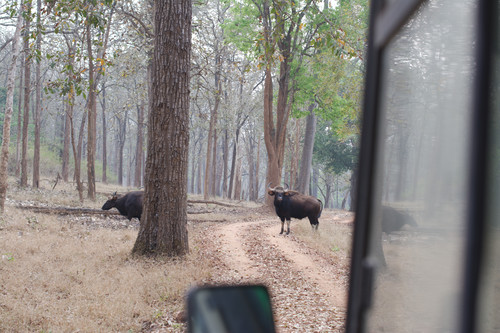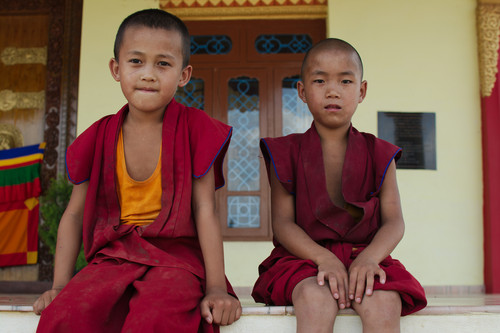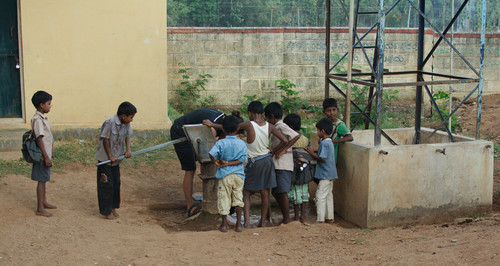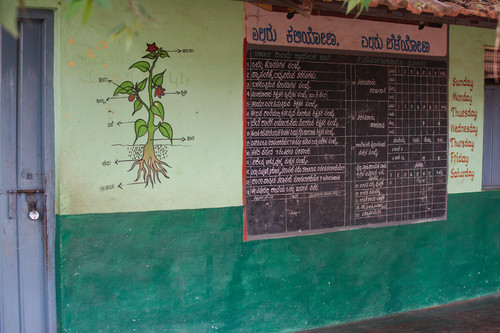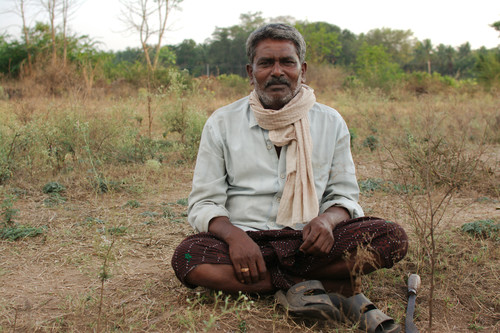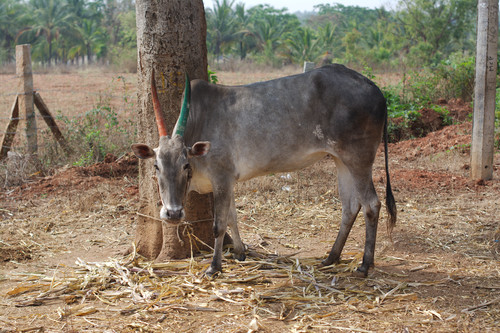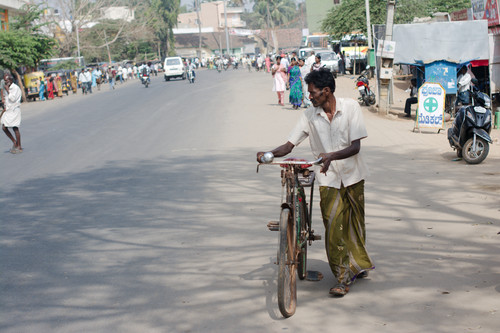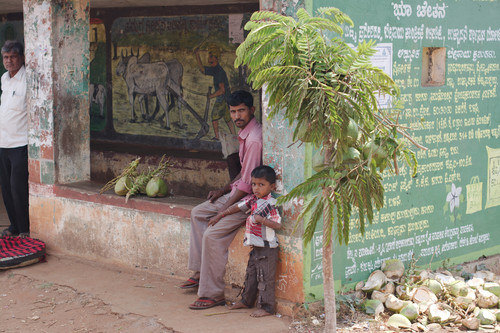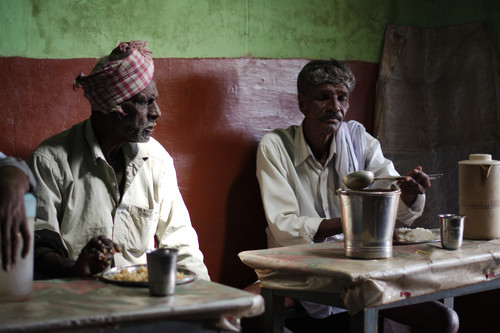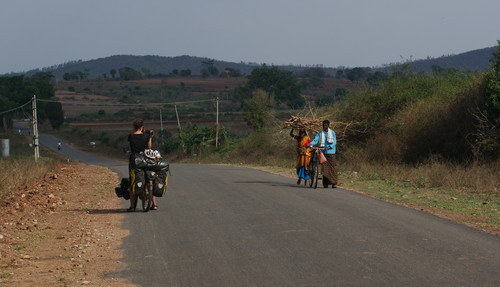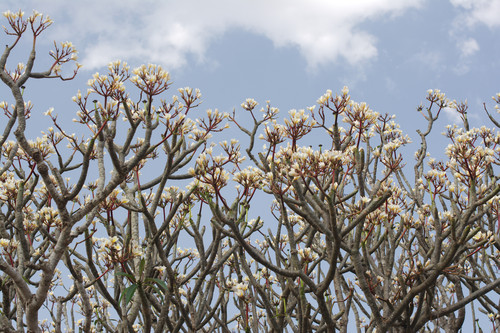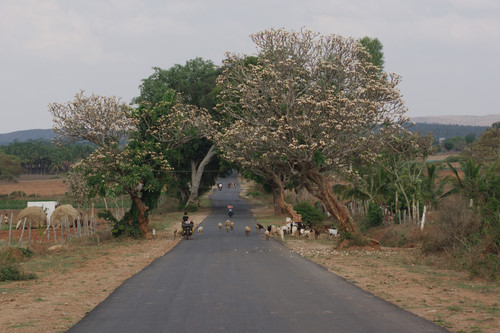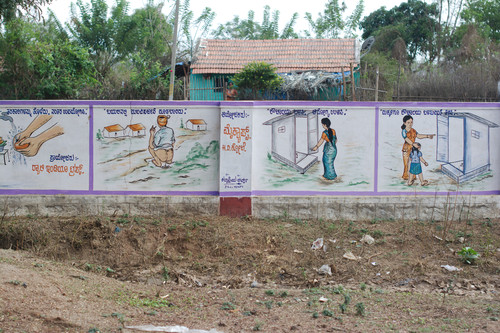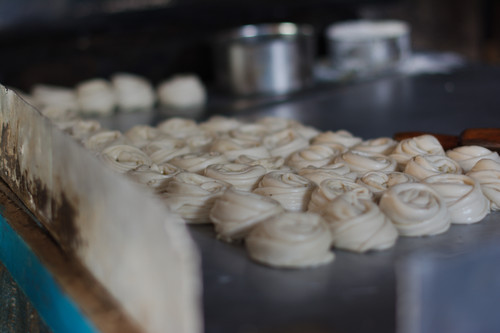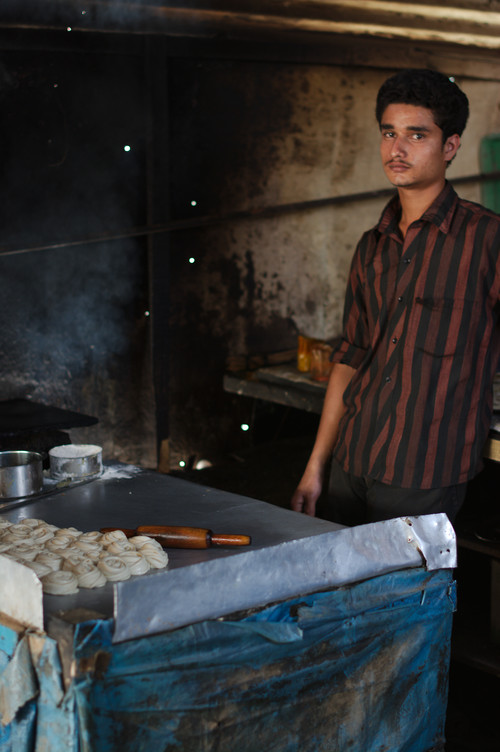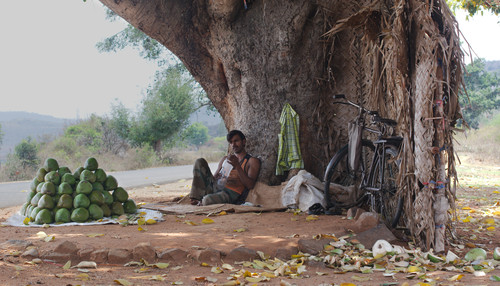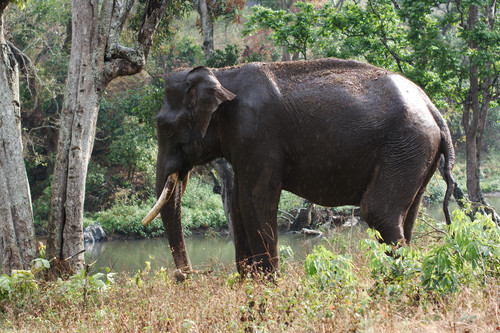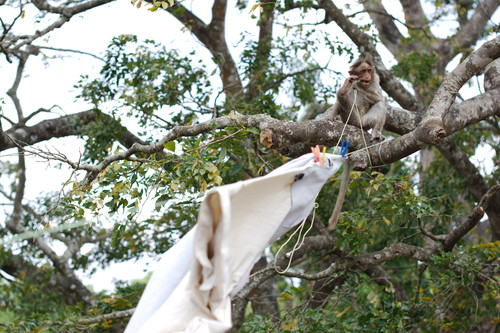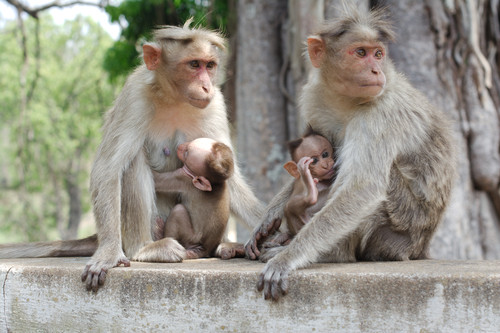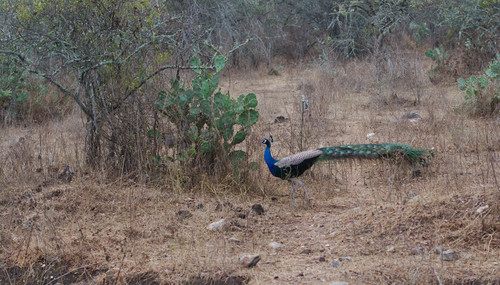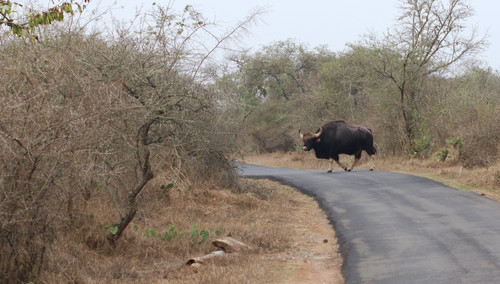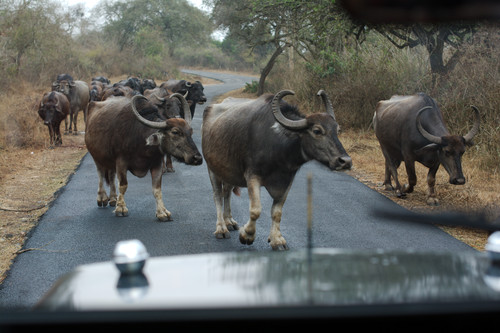The cult of the horn
distance: 603.36km
duration: 85h 37min
Probably influenced by the looming winter and the declining daylight, a feeling of discontent and slight depression had started to creep up on me when we had arrived in Bishkek in October after crossing the Pamir. I've always been prone to winter blues and during our two weeks in Bishkek I resorted to withdraw to the guesthouse-bed for internetsurfing and reading whenever my presence was not required.
Throughout our time in Kyrgyzstan, China and Pakistan these feelings of dullness, indifference and the desire for reclusiveness didn't dissipate. While I managed the physical challenges and strain of the nomadic life on the road and in our tent just fine, whenever we stayed for a few days under a roof in a more or less comfy bed with some level of infrastructure (Food-stalls or shops nearby), I tried to indulge in it as much as possible. I permanently felt like I didn't get enough mental rest. Daniela usually dragged me out for some activity and sightseeing, but a few times I opted to stay in the hostel.
Winter had catched up on us again in Lahore with fog and cold weather and we decided to take a big leap by train to Mumbai, to the warmth and sunshine of southern India.
We continued cycling through Maharashtra and the north part of the Western Ghats and had an extensive holiday in Goa. My mood improved somewhat (As it had done while beeing outdoors on the road in Kyrgyzstan and Pakistan, cycling and camping) but after a few weeks I realized my enthusiam for the travel had still not recovered to the level it had in Turkey, Iran and Central Asia.
8 months in the travel, everyday cycling was starting to bore me, the daily chores of camping started to be a hassle and India came up with two new pests to plague us: noise and masses of curious people
Horn OK Please
The noise issue of course was mostly caused by motor traffic - less so from sheer amount of vehicles, but much more from irritating driving-habits - Indian drivers love their horn. Honking for them comes as natural as switching gears, steering and breaking. In other words, the horn is used all the time - they blare and beep and squawk and schrill and sound and screech whenever there's an opportunity - when they take over, when the traffic is slightly thicker, when there are people walking next to the road (They could spontaneously jump in front of the car, right?), at every bend on a winding road (No matter how wide it is), to oncoming traffic, and of course when they pass cyclists, no matter how much space they have to take over and how little opposing traffic there is. The worst are the busses, who are earsplittingly loud - the type of horn that is so loud it makes you jump even when you anticipate it - even more so when they decide to use it right behind or next to you when they take over.
While the honking issued hadn't faced us much in Maharashtra, it started to pick up more and more after Goa and after leaving Udupi our frustration with it had grown to a level were it seriously bothered us.
We were able to mitigate our stress somewhat by swearing "Fuck you!" or "Hoit di Goschn!" under our breath whenever we heard a horn and it is my firm belief that the silent cursing had largely contributed in keeping our mental health during our 5 months of travelling in India.
Many of the lorries have the slogan "Horn OK Please" on their back-panels - meaning "Please use your horn when you drive behind me or take over", a slogan that appeared very cynical to us after a while and summed up our feelings about the mindless, irrational honking. While it researched for this blog-entry, I realized the phrase even has it's own wikipedia-entry.
You are never alone in India
We are not the first travellers that experience that India is a crowded place. Having picked the South, we probably had it a bit better than cycling through northern India would have been (Tim and Laura Moss eventually shortened their stay in India significantly, here's their reasoning).
Tim explains it lovely sardonic under the aforementioned link - stopping in the center of a small town in India as a touring cyclist usually attracts a large crowd within minutes and personal space seems to be a foreign concept in this part of the world. We already have had plenty of the same on the Great Trunk Road in Pakistan and were no longer surprised or intimitated by it. Usually it is as much of a show for us as it was for the curious bystanders. While this type of social interaction is amusing, it also drains your power and after a tough day in the heat on the road all you long for in the evening is peace and silence.
A few times we had huge difficulties in finding a place to pitch our tents, as there were either too many people, plowed land (dirt) or jungle. On one occasion we were discovered by kids and soon after a whole village followed. Even a rickshaw-taxi appeared and dropped of passengers to gawp at the westerners that had appeared in their backyards.
While we were setting up our tent and preparing vegetable soup, a large crowd (>30 people) surrounded us, watched, asked questions and commented to each other on our evening chores until the dark set in. We actually had a lot of fun interacting with the village people, but were still glad when we were finally alone.
In the morning we were woken by kids who happily shouted "GOOD MORNING!" outside of our tent and tried to get a glimpse through the windows to see the thrilling things we were doing inside (I zipped them shut shortly after, so we could change our clothes in peace). For breakfast we had been invited to the private house of an educated young women who had helped in translating the villagers many questions the day before (Not that many Indians speak reasonably good english after all).
While the overnight stay in this village remained with us as one of the fondest memories of India, during the course of days that followed we had a streak of bad luck which eventually set the stage for the lasting image of our time in India.
A few days after we had camped near the village, we had found a perfect and relatively secluded spot (For Indian conditions) near a pond. There was only one house nearby and their offspring enjoyed the distraction we provided but didn't disturb us further. The place was an unused patch of grass on the mound surrounding the pond, clearly of no use to anyone and there was no fence around it.
Unfortunately our tent was visible from the road and when we had already put up the tent and started to chop vegetables for dinner, a young man appeared. He identified himself as an employee of BBTC and was terribly worried about our safety (And most importantly his role as the one beeing responsible when "something" happened).
I reasoned with him for a while, joked about his outlandish horror stories on man-eating tigers and blood-thirsty elephants, reasoned some more with his boss on the phone but was always sure he would eventually give up and leave us alone for the night. I underestimated indian bureaucracy.
After a half hour, his boss arrived, another young guy with no authority and after that the bosses boss (Another babyfaced 20-something).
One and a half hour of mindless debate ensued (All while we continued cooking) until the bosses boss started to get visible pissed of by our relentlessness (Although in a very restrained indian way, as to not make anyone loose face). My jokes about their arguments for our "security" also started to get more snarky and we realized they would not give up and really wanted to make us leave from this unused patch of grass in the middle of nowhere.
I had argued us out of a similar situation were we camped on a field in Iran and where the police had turned up in the middle of the night - but oh well, nothing beats islamic hospitality. It appears indian's loyalty to their corporate policies is even stronger than an iranian policemen's dutifulness.
At some point, it was already dark, I realized that I couldn't convince them to let go of their bureaucratic stubborness and fear of responsibility and to use common sense instead. Disgruntled we finished dinner, packed our stuff and left.
Cycling back a half hour to the next town in the dark was the only real concern for our security that evening (Some of the cars where driving without lights), but soon after we found ourselves in a smelly, decaying and stuffy dirt-cheap hotel-room with leaky windows that barely shielded against the noise of the traffic outside.
Our grief continued with the guards at Nagarhole National Park who wouldn't let us pass through the park with our cycles while motorbikes and cars were allowed. We had to hire a jeep to take us through the short 20km stretch of the northern edge of the park. The evening that followed we tried to find a hotel in the chaotic maelstrom of Hunsur, but got little help from locals (Many just shrugged or gawped at us, making us feel alien, others pointed us the wrong way in order to not "loose face" as they didn't have an answer). Additionally the traffic in this small town was just nuts and it took us two hours to find a crappy room.
Since we had missed the opportunity to go through Nagarhole on our own (And we had been incited by "The Rough guide to India" that it was the best chance to see wildlife), we had decided to do a "safari" in the national park the next morning.
Since our guidebook said the best time to see animals was in the early morning, we had arranged to leave for the park at 4:30 in the morning. We went to bed early but didn't sleep too long. During the night a group of Indians arrived. They trampled noisily and chattering through the corridors and staircase and each and everyone of them tried to get into our room, thinking it was unoccupied for some reason, keeping us from sleeping after the already exhausting day. This is odd behaviour for an european, who would be quiet and considerate in this situation, but it's pretty normal in India (We had similar experiences before and after).
To transfer to the park in the morning we had arranged a private driver. The guy was of the "notorious honker"-sort (Constant blarring throughout the 30min ride despite empty streets at 5am). When we arrived at the park, the rangers told us we were the only 2 guests and they wouldn't do a tour just for the two of us unless we each paid twice the already inflated price (The regular price for foreigners is 16 Euro, four times what an indian is charged). After protests and a talk with the park head, we were granted "our safari" for the regular foreigner price (So 32 Euros for the two of us). It turned out we were going in a rattling, noisy old bus that guaranteed to disturb and chase off all the animals in a radius of 2 kilometers - especially the rare tigers - so all we ended up seeing were the same noise-hardened deer we had already seen from the short jeep-ride (And a herd of indian bison), other than that, our "safari" was not more than noisy bus ride through an empty wood far too early in the morning.
The icing on the cake was that the private driver tried to squeeze more money from us when he dropped us of at the hotel (Despite that we had already agreed on a reasonable price beforehand - apparently he had realized we are rich, stupid tourists who could be milked some more).
While these stories sound like the standard Asia-travellers fare, the accumulated frustration from these episodes, after so many months of travelling, strained our nerves beyond a point which we could recover from without feeling expended and cynical.
Luckily, it got better shortly after. By concidence we went by a tibetan refugee village, which provided for a nice change in impression and spent a few days cycling through calmer rural areas, where we met gentle people which gave us back the feeling of curiosity and stimulus we are looking for in travelling.
Crossing the border to Tamil Nadu through Bandipur and Mudumalai National Parks and Tiger Reserves was allowed by bike to our relief. We spent two nights in a run-down but very quiet and nicely located resort at the edge of the park and did another safari, this time in a much more sensible jeep with an enthusiastic guide who enjoyed showing us the area and tried hard to find animals for us to see (We didn't see Tigers, but a few more Gaurs and plenty of deer).
While the anectodes above might give you impression that the travel has gotten to a constant source of frustration for us (And especially me, Daniela's blog-entry on the same period is more lighthearted), but it was not at all like that. Since I have a quite healthy humour and a tendency for sarcasm, I could still laugh at and enjoy most of these situations.
What started to drag on me though, similar to what I wrote about in the preface, was the boredom and lack of meaning of getting up each morning, only to get kilometers under our wheels, while not having to handle much complexity throughout the days. All we did all day was passively absorbing what we saw, smelled and heard. The very thing you wish for during frantical, stressful periods in a job - a simple life without responsibilities - was getting tedious for me.
Most of all I wanted to do something creative and mentally challenging, to be more productive and to create something. We had the idea of staying at a place for a while to do something else than cycling - we had viewings for a few houses to rent during our time in Goa, but none of them had appealed to us.
People had told us Kerala is a great place to live, more modern than the rest of India, so we continued south, through the mountains toward the southernmost states of the subcontinent.
